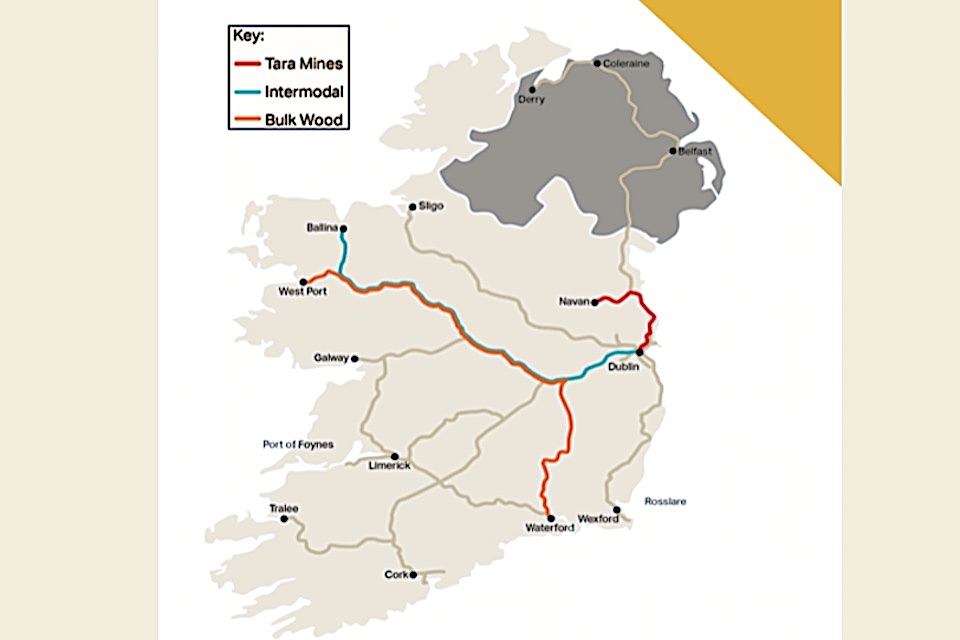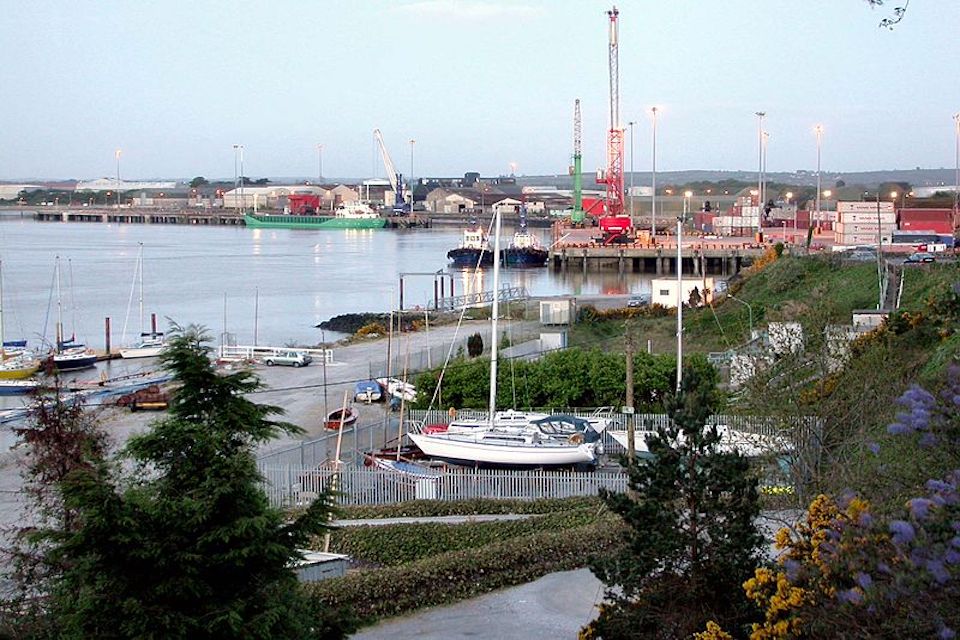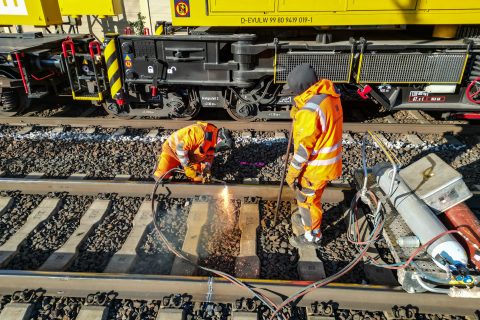Foynes to be reconnected to Irish Rail network

Work on the first phase of the Limerick to Foynes freight rail line in the Republic of Ireland is set to commence shortly. The news comes following the awarding of a 65 million euro contract for initial civil engineering by Irish Railways. The successful contractors will be John Sisk and Son, a multi-national company, active in Ireland, the UK, central and northern Europe. The project will see the west coast port, in the estuary of the River Shannon, reconnected to the rail network for the first time in over two decades.
Funded by the Department of Transport in Ireland, the project will focus on track and track bed works, vegetation clearance, fencing and works at bridges, level crossings, and public road crossings. The 42 kilometre railway line between Limerick and Foynes originally opened in 1858 and closed to passenger traffic in 1963, with freight services continuing until 2001. The reinstatement of the line is a key element of Iarnród Éireann’s Rail Freight 2040 Strategy to increase the levels of freight on the national rail network.
Possibility of passenger services
The construction on the reopening of the Foynes to Limerick Rail line for freight services is set to begin, as rails have been delivered to the Shannon Foynes port to commence civil works. The first phase of the project involves the contractors, John Sisk and Son, in vegetation clearance, the removal of existing track, the replacement of track formation and installation of a new ballast bed to current Iarnród Éireann standards. There are also requirements for the rehabilitation and renewal of bridges and culverts, the supply and installation of new rail and concrete sleepers along the entire route, the renewal of road infrastructure at public road level crossings, renewal of accommodation crossings, renewal of lineside fencing, and installation of infrastructure to accommodate the next phase of the project.

The relatively short length of the line, and the foresight of mothballing, rather than removing, the permanent way, has helped make the project more affordable. The works are anticipated to take about two years to complete, with vegetation clearance already underway. The subsequent phases will facilitate rail freight services, and the route is expected to open for freight services in 2025. The current phase of work and subsequent phases will not preclude the possibility of passenger services being reintroduced on this line in the future, but this would require further infrastructure upgrades and funding.
Sustainable logistics option
Irish Railways (Iarnród Éireann in the native Gaelic language) is working on the project in collaboration with the Shannon Foynes Port Company, and Limerick City and County Council local authority. The project supports several economic development initiatives, including Iarnród Éireann’s Rail Freight 2040 Strategy; and the recently launched strategic review of the Shannon Foynes Port ‘Vision 2041’. The news comes shortly after the Irish government announced a further opening, the first new freight terminal for fifty years in the Republic.

“Our Rail Freight Strategy is all about creating connections and giving greater opportunity for businesses to switch from road freight to more sustainable rail freight”, said Jim Meade, Chief Executive of Iarnród Éireann. “Seeing the work commence on reopening of the Limerick to Foynes rail line is a proud day for us at Iarnród Éireann. I am certain that upon reopening of the line, working with our colleagues at the Shannon Foynes Port Company we will deliver a reliable, frequent and most importantly sustainable logistics option for many companies that currently and in the future will use the port of Foynes.”
You just read one of our premium articles free of charge
Want full access? Take advantage of our exclusive offer





